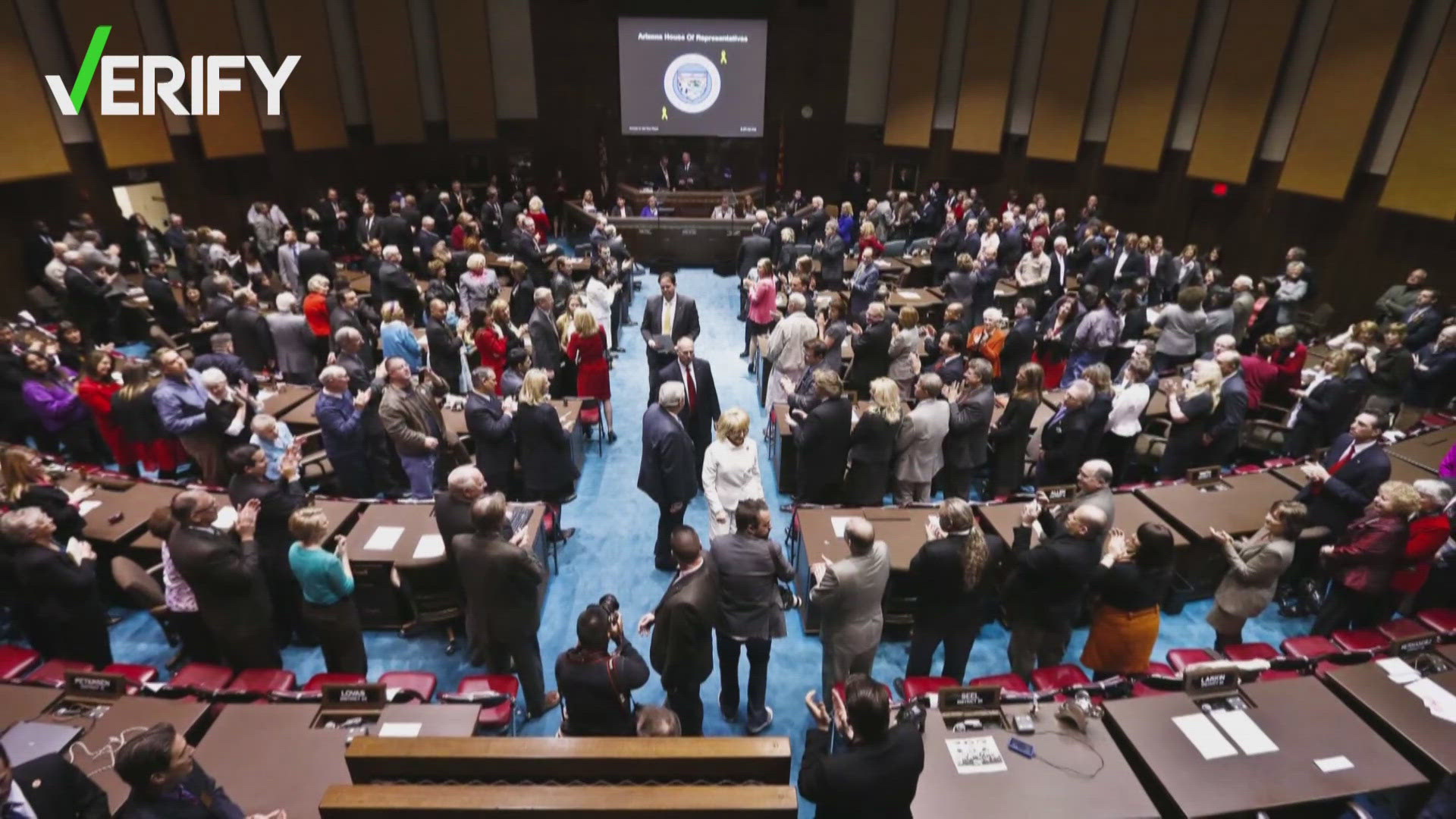PHOENIX — Republican legislative leaders want to protect a wealthy family’s ability to obtain taxpayer-funded vouchers while they are simultaneously threatening to hamper public school districts from spending money already allocated to them, said Arizona State Senate Minority Leader Mitzi Epstein (D) on Monday.
Epstein made the comments to 12News as legislative leaders are negotiating with the governor behind closed doors for a new state budget that begins July 1. The state faces a shortfall this year of about $850 million.
From wealthy to poor, all families are eligible for vouchers
The single largest cause of the financial shortfall is the private school voucher expansion known as Empowerment Scholarship Accounts. It amounts to about $430 million of new expenses to the state budget this year alone, according to both an independent analysis and calculations using a formula from the nonpartisan Joint Legislative Budget Committee.
All children are eligible for taxpayer-funded vouchers regardless of their parent’s income level.
Supporters of the program tout a new era of “school choice” where any family can access public dollars for private schooling. Opponents cite studies that suggest “more advantaged communities are securing a highly disproportionate share of the ESA funds”.
Despite calls by Democrats and the governor for tighter regulations to rein in spending and prevent potential abuses, Epstein tells 12News that Republicans will not budge.
“Speaker Toma is intractable,” Epstein said. “He is very proud of the arrangement. It’s free money.”
House Speaker Ben Toma of Peoria-R, declined to comment for this story. 12News also requested comment from Senate President Warren Petersen of Gilbert-R who did not respond.
Epstein: Republicans threaten not to renew AEL
Epstein said Monday Republicans are also taking aim at public school system budgets by threatening not to renew what was, until recently, a formality for the legislature: the Aggregate Expenditure Limit. It requires the legislature to vote to approve certain increases in K-12 spending already allocated by the legislature through the budget process.
“They have chosen to waste time playing chicken with the AEL,” Epstein said.
After a bitter debate on the Senate floor over approval of the AEL in 2022, then-Senate President Karen Fann-R said she believed the AEL was outdated and she “prayed to God” for a fix to avoid future squabbles.
Her prayer was not answered.
ESAs in Arizona are an unfunded mandate
The financial impact of ESAs is not entirely a surprise. When Toma and then-Governor Doug Ducey led the push in 2022 to make Arizona the first universal voucher state, they did not create a way to fund the program.
The state is now feeling the repercussions.
For Republicans, often the party decrying “government handouts,” the ESA expansion does not just amount to a massive new entitlement program. It is an unfunded mandate.
The director of the nonpartisan Joint Legislative Budget Committee told state lawmakers in January of 2023, “We’ve never really faced this circumstance before where you’ve got this requirement, but it isn’t funded.”
A nonprofit that champions private school vouchers views the ESA program as comparable to other government programs that give citizens choice.
“In a perfect world would we have government fund education? Probably not,” said Colleen Hronrich of the Cato Institute’s Center for Educational Freedom.
“Food stamps, Medicare, all of those entitlements are funding the people, and the people make the purchase. The government doesn’t say ‘go to this government hospital’ or ‘go to this government grocery store’.”
ESA supporters falsely claim vouchers save the state money
Instead of speaking candidly about the financial straits posed by the ESA program, Toma has instead made the false claim that ESAs “actually save the state money.” Other ESA supporters make similar claims, focusing on a broad statistical comparison of the overall average per-pupil funding amounts for district students ($13,400) versus ESAs ($9,800).
The comparison does not reflect actual year-to-year expenditures by the state for the purpose of public education.
As 12News has reported, school funding is based on complex formulas that involve federal, state and local funds. Many of those costs are fixed – not directly tied to annual enrollment. Other costs are variable. The $13,400 per pupil amount includes many fixed costs for the system as a whole. The comparison is further complicated because public school students are also funded differently, depending on which school district they live in.
As the JLBC has calculated, ESAs represent an added cost to the state budget in all scenarios except for one- when a child leaves a charter school to take an ESA.
Another common falsehood is the ESA amount is 90 percent of the state’s “base” amount for a district student (thus ESA supporters claim the voucher is less than the base funding total for a district student.) In actuality, the ESA amount is 90 percent of the per-pupil charter school allotment (which is significantly higher than the per-pupil district school allotment.
Up to Speed
Catch up on the latest news and stories on the 12News YouTube channel. Subscribe today.

